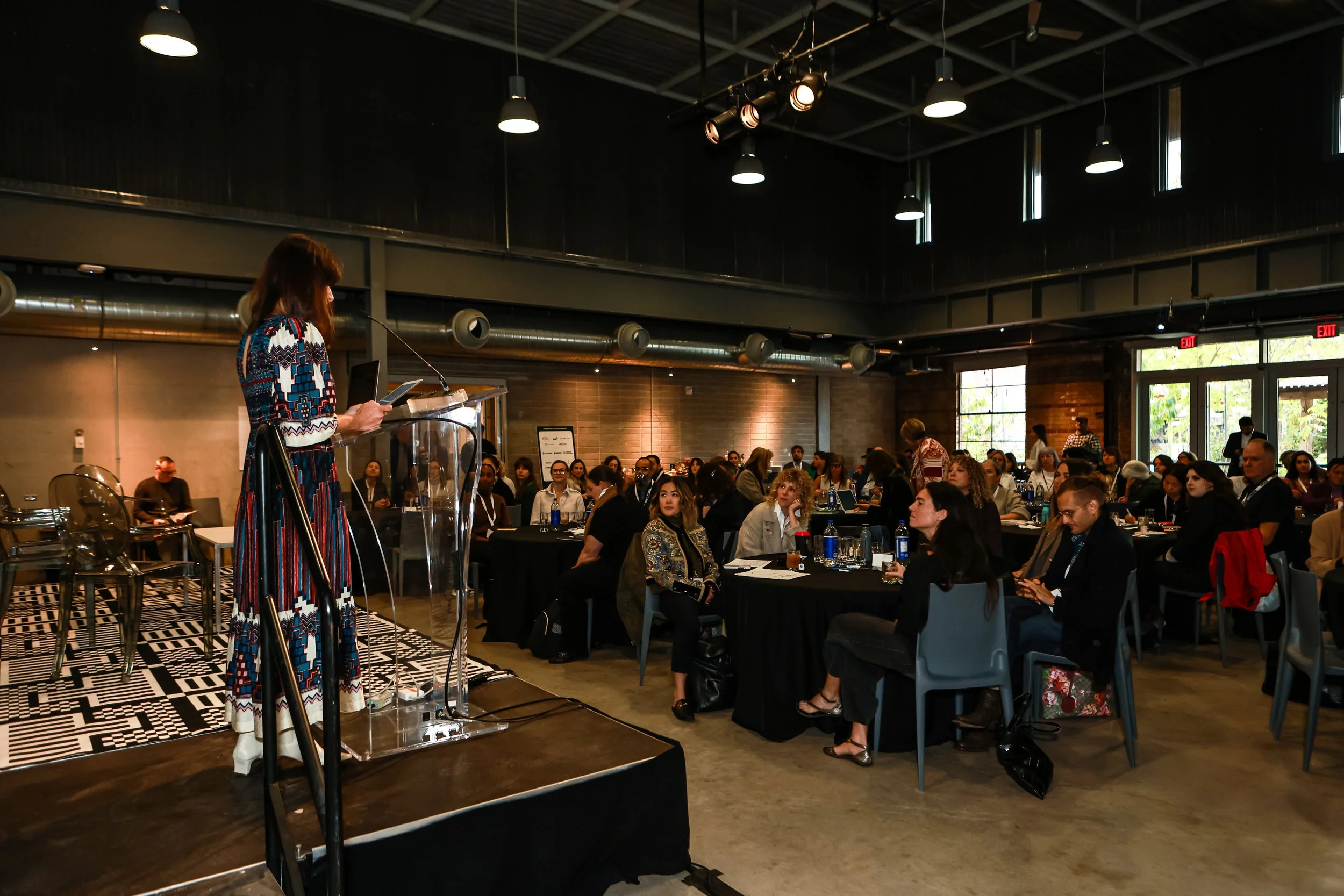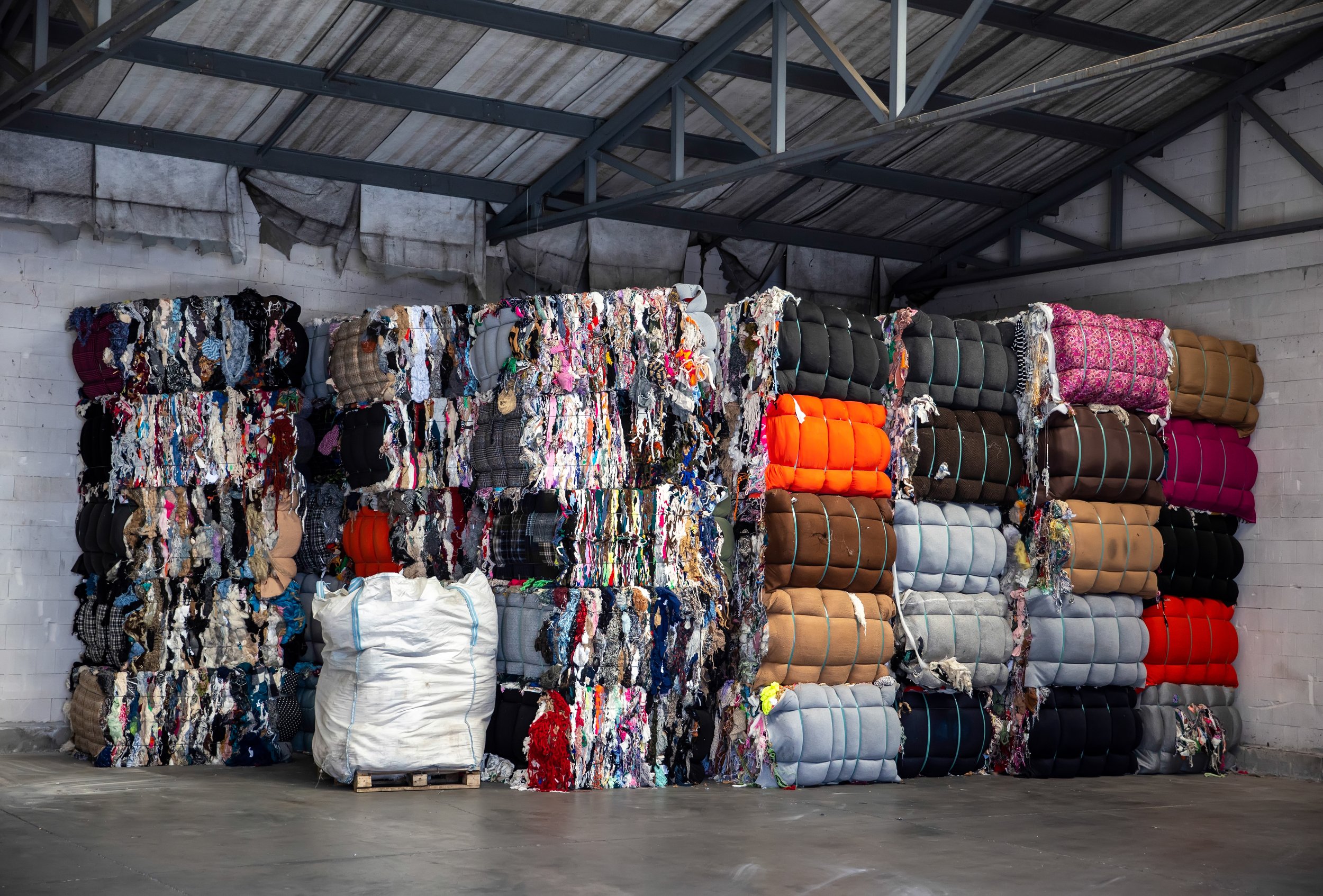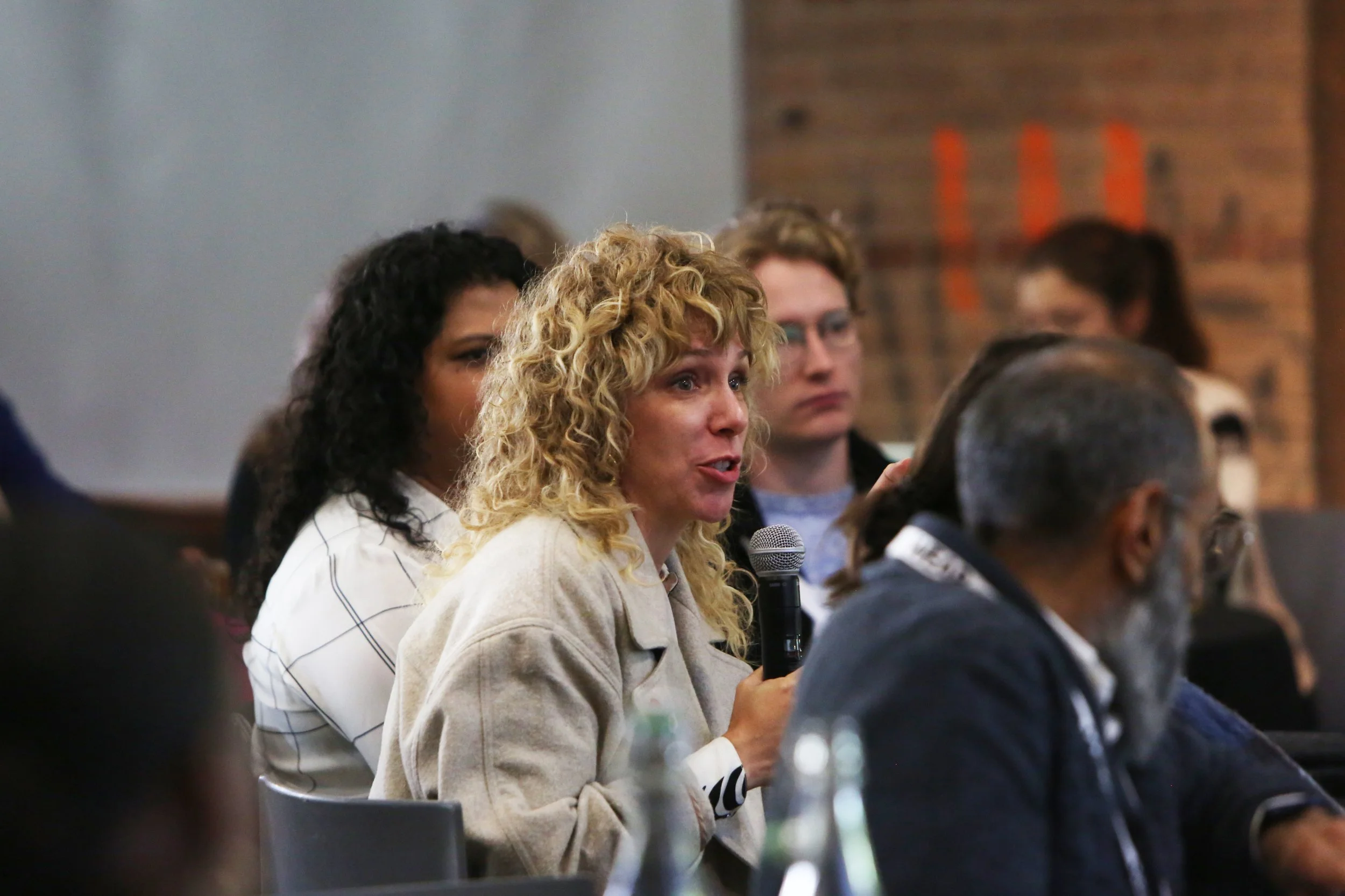
Canadian Circular Textiles Consortium
Leading the Circular Textiles Revolution

Building partnerships. Driving solutions. Closing the loop.
What is the CCTC?
The Canadian Circular Textiles Consortium (CCTC) is a national initiative that unites brands and retailers, policymakers, charities, NGOs, academia, and innovators to advance circularity in textiles across Canada.
Vision: An integrated, circular system that eliminates global textile waste and advances the transition to a regenerative economy.
By aligning efforts and sharing knowledge, the CCTC works to develop scalable solutions for textile waste, close material loops, and build a sustainable and circular future.
Intended Impact: CCTC will enable a circular textiles system by optimizing resource use across the textile value chain in Canada.
Key Objectives:
Reduce the volume of textiles in landfill through improved recovery and recycling systems.
Support the growth of circular business models, such as resale, rental, and repair.
Influence policy development to drive systemic change.
The History of the CCTC
FTA has led circular fashion in Canada, driving collaboration and innovation for nearly a decade. Our commitment began in 2016 at the WEAR Conference with our first stakeholder lab on textile waste diversion. This event sparked a series of working sessions that united key players across the supply chain to identify barriers and opportunities. Since then, we’ve advanced through research, policy engagement, and partnerships, launching initiatives to shape a more circular, sustainable future for textiles in Canada.

Our Approach
The Canadian Circular Textiles Consortium (CCTC) is committed to eliminating textile waste and accelerating the transition to a regenerative economy. By optimizing resource use across the textile value chain, we drive systemic change through four key pillars:
-

Policy & Legislation
Advocating for policy reforms that support standardization, regulations, and textile waste diversion.
-

Education
Raising awareness on circular economy principles and inspiring behaviour change.
-

Market Data & Insights
Understanding the current state and fill in data gaps related to material flows, policies and initiatives, & their overall impact in Canada.
-

Applied Research & Pilots
Supporting innovation and business models that advance circularity in Canada’s textile industry.
Futures Framework: Our Roadmap
In its first year, CCTC stakeholders identified 12 key action areas that are necessary in order to transition to a circular textiles economy. These include circular business models, circular design, policy drivers, citizen and industry education, green procurement, expanding existing infrastructure, financial incentives, investment in innovation, made in Canada, impact measurement tools and traceability/transparency.
With stakeholder roles and responsibilities now mapped, we’re leveraging this internal roadmap to strategically prioritize action areas through capability mapping and gap analyses, ensuring a focused and effective path forward.
Current Projects
-
Developed in collaboration with Deloitte, our Circular Business Models (CBM) initiative provides a strategic framework for businesses to adopt and scale circular practices. By analyzing the current landscape, the report identifies key capabilities, operational gaps, and opportunities for improvement to support the transition to a sustainable circular economy.
Through industry engagement, expert interviews, and heat mapping, this project delivers actionable insights to help businesses implement circular strategies effectively. The final deliverable—a CBM Value Chain Capability Map report—will outline recommendations and next steps for industry adoption.
-
Developed in collaboration with WRAP International, the Circular Design Project aims to provide both practical tools and strategic guidance to help Canadian brands, designers, and manufacturers integrate circular design principles.
Through stakeholder engagement, gap analysis, and industry consultation, this initiative will deliver two key resources:
Circular Design Toolkit – A hands-on resource with templates, checklists, case studies, and decision-making tools to support businesses in adopting circularity.
Circular Design Guideline – A high-level framework of best practices, principles, and policy-aligned recommendations to drive industry alignment.
Together, these resources will enable Canadian businesses to implement circular strategies effectively while contributing to future policy development.
-
This project seeks to inform policy, identify business and infrastructure needs, and enhance data sharing by conducting a material flow analysis of secondhand and discarded textiles in Canada. By mapping out the movement of textiles through the system, the project will provide valuable insights into volumes, key stakeholders, and inefficiencies, helping to shape more effective waste diversion and circular economy strategies.
The outcomes of this initiative include the Secondhand Clothing Diversion Network (SHCDN) Opportunities Assessment & Recommendations report and a Material Flow Analysis that integrates municipal data with findings from the assessment. These deliverables will offer actionable recommendations to improve textile diversion, strengthen industry collaboration, and support a more sustainable approach to managing textile waste in Canada.
-
This project aims to empower citizens to engage in the circular economy by prioritizing the 7 R’s waste hierarchy (reduce, reuse, repair, repurpose, resale, rent, recycle), and making more responsible purchasing and end-of-life decisions. Through accessible education and engagement, the initiative encourages the adoption of sustainable habits that contribute to waste reduction and resource efficiency.
A key component of this initiative is the development of a dedicated website that will serve as a central hub for educational resources, helping the average person make informed choices about clothing consumption, use, disposal, and reuse. By increasing awareness and participation, the project aims to embed circular economy principles into everyday decision-making, creating long-term environmental and social benefits.
-
This project explores the potential of end-of-use industrial, commercial, and institutional (IC&I) textile char as a soil amendment in Canadian agriculture. Conducted in partnership with Fanshawe College (Principal Investigator), CCTC, and Western University ICFAR, the study will assess whether textile-derived char can enhance soil health and sustainability. If initial findings are promising, the pilot will move to a field study in partnership with an eastern Ontario farm
The research aims to determine the viability, benefits, and scalability of using textile-derived char as a sustainable agricultural input. The project will produce a final report detailing research protocols and findings, along with a feasibility study examining market potential, technical viability, operational considerations, and financial feasibility. These insights will be shared with agricultural stakeholders to explore the potential for large-scale adoption.

Our Partners
The CCTC is powered by collaboration. Our 110+ partners include brands, charities, NGOs, academia, manufacturers, recyclers, and policymakers committed to creating a circular textile system.
Strategic
Collaborating
Knowledge
Observing
Join the CCTC
Interested in becoming part of a national movement to close the loop on textile waste? The following list of benefits range depending on the partner level:
Access to research and insights at both global and national levels
Access to our exclusive monthly Wrapped newsletter
Access to Learning Series webinars’ (past webinars have included ‘Sorting for Circularity in the North American Ecosystem’, ‘Next-generation materials’, ‘Pre-processing Technologies, and more).
Access to discounted rates for events such as the CCES 2025 Textiles & Apparel Track
Opportunities to collaborate on, and network with industry peers, thought leaders and industry experts, policy makers and other government officials
For more information about partnership, please submit our inquiry form >
Partner Testimonials
































































